CONTACTAbout UsCAREER OPPORTUNITIESADVERTISE WITH USPRIVACY POLICYPRIVACY PREFERENCESTERMS OF USELEGAL NOTICE
© 2025 Equal Entertainment LLC.
All Rights reserved
All Rights reserved
By continuing to use our site, you agree to our Privacy Policy and Terms of Use.
We need your help
Your support makes The Advocate's original LGBTQ+ reporting possible. Become a member today to help us continue this work.
Your support makes The Advocate's original LGBTQ+ reporting possible. Become a member today to help us continue this work.
"All I can do is share my experience, and you're either going to relate to it or not," Chaz Bono says firmly. The 42-year-old is sitting on the edge of a deep leather sofa with his legs crossed, ankle on knee. He's finally ready, perhaps even eager, to discuss his new book and film after being unable to speak publicly following a lengthy management-imposed media lockdown to heighten the impact of these two tell-all projects.
On May 10 the simultaneous publication of Transition: The Story of How I Became a Man, his perceptive, exceptionally well written memoir (Bono's third) and broadcast premiere (on the Oprah Winfrey Network) of the bold, unflinching, often very witty film Becoming Chaz, which documents his gender-reassignment surgery, thrust Bono back into the spotlight with which he's had a love-hate relationship for nearly four decades. Though his demeanor is serious and matter-of-fact, his newfound happiness is also apparent. His face frequently breaks into a beaming grin that his longtime girlfriend, Jennifer Elia, will later describe to me as a smile that can light up a room.
But why did Bono decide to be so public about this most private of transformations? He says he didn't have a choice. "I've learned that if you don't tell your own story, someone else will, and they'll do a bad job of it," Bono says with a smile, surely recognizing the understatement.
His life has been well chronicled by this point. Until two years ago, Bono was widely known as Chastity, the only child from the union of superstar entertainer Cher and the late record producer and singer turned congressman Sonny Bono. While living as a biological female, Bono endured gossip and a tabloid outing before taking control of the story and self-identifying as a lesbian in a 1995 cover story for The Advocate. After coming out, Bono would write numerous articles for this publication, author two books, and eventually become a spokesperson for the Human Rights Campaign. He also served a controversial stint as entertainment media director for the Gay and Lesbian Alliance Against Defamation, during which time he was misquoted in the press as describing Ellen DeGeneres's sitcom as "too gay." Bono says he was treated "like a pariah."

In the documentary Bono tells of going to bed at night as a little girl and praying that he'd wake up as a boy. In the book Bono also recounts his youthful love of classic horror movies such as Frankenstein and The Wolf Man. Are there parallels between these supernatural tales of transformation and the desires of a young boy trapped in a female body? Bono is momentarily perplexed. "I never even thought of that," he says. "Maybe subconsciously, but at that point I didn't even know this type of transformation was possible."
Bono cringes at the memory of living in the 1990s as a lipstick lesbian, comparing it to being trapped in an awkward work uniform. "It was torture," he says. "I was uncomfortable every minute of my life." But then Bono watched Boys Don't Cry, the Academy Award-winning 1999 film about murdered transgender man Brandon Teena, and suddenly the possibility of change seemed real in a new way. Bono also sensed that the film coincided with a general shift in the cultural attitude toward transgender people. America was a little more open to the idea of someone like Chaz, whose understanding of himself didn't match his body.
Bono began to contemplate whether he was transgender. He became acquainted with Masen Davis, a California-based transgender male activist, who helped Bono recognize the truth about his desire to become physically male. He soon began to see a transgender therapist and catalog his fears about transitioning. "Every single fear you can think of, from wondering what the neighbors would think to being disowned by family," he recalls. "I just kind of slowly worked through the list, seeing that [my fears weren't] realistic, so the list got smaller and smaller." Bono began to realize that how everyone else reacted to his decision wasn't his responsibility. "It wasn't my job to make other people feel OK about this," he says. "It was time to take care of myself. When that clicked it was full steam ahead."
This trial-and-error aspect of Bono's transformation is vividly depicted as the documentary cameras capture a trivial argument between Bono and Elia while they prepare food for a party. Bono's hormonal changes have made him edgy and short-tempered, and he snaps at his girlfriend. "The arguments in the film were a combination of a lot of stuff going on in our lives that was all happening at once," he says. "I'm not going to say that Jenny and I never fight, but you see the kookiness of the woman I share my life with."
That woman is Jennifer Elia, a 35-year-old private tutor. She's an attractive, free-spirited brunet, whom Bono describes as "a modern-day Lucille Ball." Elia says that if forced to label her sexual orientation, she's bisexual. Elia met Bono on a blind date in 2005, and though both say it wasn't exactly love at first sight, she remembers being instantly drawn to Bono's toothy smile. "We hit it off on more of a spiritual level," Elia recalls. "We just got each other pretty quickly."
Elia never suspected that Bono was transgender. "I just thought he was a very masculine woman," she recalls. "Butch." It was an ill-meaning ex-girlfriend of Bono's who informed Elia that her lover was planning to transition. When Elia asked if it was true, Bono confessed. "He told me he wanted me to kill him before letting him grow old as a woman," Elia remembers. "I knew in the back of my mind that he'd have to transition or he wouldn't be able to live happily."
Elia's bisexuality may have served as a sort of bridge, a factor that helped their relationship change from a lesbian relationship into their current male-female dynamic. Elia doesn't disagree. "Chaz and I interacted with a male-female dynamic from the very beginning," she says. "There were definite changes beyond just feeling a male essence after he transitioned."
In September 2009, Bono underwent top, or chest, surgery, to have his breasts removed. (He'd had a hysterectomy in 2005 due to endometriosis.) Waiting for medical advances to catch up, Bono is currently undecided whether to have bottom surgery. "At this point the ratio of risk and reward are a little off," he says. "Hopefully there will be better options as time goes on. That's what I'm waiting on. To me, the options of bottom surgery aren't that great, considering the time, money, and pain you have to go through."
Bono insists there's been no downside to his life as a man. He even describes the excitement of experiencing puberty a second time, in his 40s. "The first time was so traumatic that I literally felt like my body was turning against me," he says. "Life was really difficult, but now it's fun and I'm on the same footing as everyone else. I finally feel comfortable in my body for the first time. I look in the mirror and see reflected how I've always felt inside. It's almost impossible to calculate the difference."
Elia agrees, offering a checklist of improved characteristics in the person with whom she's spent the past six years. "He's happy, productive, motivated, and he's more social," Elia says. "He'd put himself in a depression because he was so unhappy in the body he inhabited. Naturally, once you change that and you're more comfortable within yourself, you're going to be more social. He's also been a lot more productive. In his two years as a man he's written a book, coproduced a documentary. He works with a children's group. He's been out there living to the fullest."
Living life to the fullest will likely mean that Bono will become a spokesman for an underrepresented community. He has a high profile and has the experience of having worked in the past as an LGBT activist. "When I was struggling for many, many years whether to transition, I read other people's books and watched documentaries on the subject that helped me to finally gain the strength to be who I needed to be and who I am," Bono recalls. "So I want to give back."
The anticipation is almost palpable in the transgender populace, which has a paucity of strong role models, particularly for trans men. Bono's Facebook page is filled daily with well-wishing posts from other transgender people eager to see his film and read his new book. "People are excited to see someone who already has such a positive image come out and show that transgender people are just like everyone else," says Jake Finney, a transgender man who manages the Los Angeles Gay and Lesbian Center's Anti-Violence Project. "Chaz is a very down-to-earth person and easy to relate to. He can dispel a lot of negative stereotypes about transgender people."
There's a moment at the beginning of Becoming Chaz when Bono reflects on what it meant to be the child of two in-demand celebrities. "I just learned to stay under the radar," he says.
But Bono's place in the public eye is unique, so it's not difficult to imagine the media feeding frenzy over a story with this much potential to titillate. On one side of his family there's his mother, Cher, a household name, a bona fide gay icon, and an entertainer of the highest magnitude. On the paternal side of his family is politics--Republican politics. Bono's late father, Sonny, famously served as mayor of Palm Springs, Calif., before being elected to Congress is 1994. After he died as a result of a skiing accident in 1998, his third wife, Mary--with whom he had two children, a son, Chesare, and daughter, Chianna--won a special election to succeed him. Still in the House of Representatives, she is now married to fellow Republican congressman Connie Mack IV of Florida.
First there's Cher, forever in a class by herself. She's notoriously unflappable, a performer whose five decade-career has earned her respect and devoted fans. Her endurance has made her the punch line of a hackneyed joke about what would survive after a nuclear apocalypse. Notwithstanding her indisputable credentials with her LGBT fans, Cher didn't handle Chaz's initial decision to transition entirely smoothly. Bono admits that it was more difficult to tell his mother than it was to come out as trans to other family members. Mother and child experienced a temporary estrangement that followed Chaz's decision to transition. In the documentary Cher expresses the concerns she initially had--chiefly, whether she'd recognize her child, and that she feared for Chaz's health. She's since come around, and during the media blitz for her film Burlesque last year, she spoke candidly about this. Cher acknowledged the bravery of her oldest child and admitted to her difficulty with getting the gender pronouns right. Bono thinks it's mostly due to the generational difference.
"She's my 65-year-old mother, and that has nothing to do with her being Cher," he says. "She's referred to me one way for 42 years of her life, so this is a big adjustment. My mom is pretty liberal, but once in a while she'll come up with something and I'll be like 'Are you kidding me?' I mean, she was a huge Ross Perot supporter!" Bono laughs when he mentions that his mother still occasionally slips up with pronouns. "She's getting better," he says. "She's a work in progress." The documentary ends with the two arm in arm at the premiere of Burlesque.
How Bono's transition has affected other family members varies by generation, though not necessarily in predictable ways. His 83-year-old maternal grandmother, Georgia Holt, is unfazed. "She's been great through this, though she didn't really understand it at first but didn't care," Bono says. "She asked me if I was the first person to do this. I was like 'No, grandma, I'm not.' "
Mary Bono Mack and her children appear in the documentary, and their acceptance that Chaz is finally content is genuine. "I have always respected and supported Chaz's decision to live life on his own terms, and it is deeply gratifying to see him so happy and fulfilled," Bono Mack says in an e-mail for this story. "I am extremely proud of Chaz and will always love him and be there for him."
Bono says his 34-year-old half-brother, Elijah (from Cher's marriage to rock star Gregg Allman), was initially disturbed by the news. "For a while it was this shocking thing because I was his big sister," Bono recalls. "I think it was the fear of change and the unknown--thinking that he was going to lose me was scary. When he spent time with me, he could see that I hadn't gone anywhere."
Bono thinks his father, Sonny, who allowed his daughter to dress in boys' clothing and to be a tomboy as a child, would have handled the news without difficulty. "He was always cooler with that stuff than my mom, so I think it would have been easier for him," Bono speculates. "As a kid I wanted to be just like him, which made him feel good. Though it was hard for my mom, who was the one I probably should have been trying to emulate, but I didn't want to be anything like."
Despite all the early years spent wishing he had been born male and regardless of the time he's previously invested as vocal proponent of LGBT rights, Bono believes he transitioned when he was meant to. "Had I done this 15 years ago, it would have been more difficult and really traumatic on my life," he says. "I wasn't ready, and I don't know the culture was ready either."
Bono is now devoted to preventing others from spending decades suffering as the wrong gender. "I want to help people avoid going through what I went through," he says. "I don't want people to wait until they're 40 to be who they are." Bono has become close friends with Dawn Berg, the mother of a young transgender son. He donates time each month to Los Angeles-based Transforming Family, a playgroup and support group for families of trans kids that Berg helped found. "There's a peer support group that I facilitate with another trans guy," he says.
"Sometimes in our group it's like pulling teeth to get them to talk to each other," he adds. Some of what Bono does is play with the kids. In play, gender issues are not discussed, but the kids learn how to be at ease with themselves and each other. "It's just worked out that all the older kids are trans guys, so we all talk about things trans guys are obsessed with, like facial hair and this and that," he says. "They ask questions like 'When can you do this?' and 'When did this start growing?' "
Bono acknowledges the power that shared experiences can have to educate people and that a generation that grew up watching him on television or reading about him in magazines now suddenly knows a transgender person.
"I don't feel that it's a mistake that I had the life I've had," Bono says. "I feel fortunate, from being put in front of the camera as a very small child and growing up to be transgender and being able to get this education out there." It seems that Bono is finally the man he always wanted to be.
From our Sponsors
Most Popular
Bizarre Epstein files reference to Trump, Putin, and oral sex with ‘Bubba’ draws scrutiny in Congress
November 14 2025 4:08 PM
True
Jeffrey Epstein’s brother says the ‘Bubba’ mentioned in Trump oral sex email is not Bill Clinton
November 16 2025 9:15 AM
True
Watch Now: Pride Today
Latest Stories
Women's Institute to ban transgender women after U.K. Supreme Court ruling
December 03 2025 4:10 PM
Grindr supports age verification bill introduced by two Republicans
December 03 2025 3:30 PM
Sarah Paulson & Holland Taylor's cutest moments on the Walk of Fame
December 03 2025 3:25 PM
Here's what Zohran Mamdani has promised to do for LGBTQ+ New Yorkers as mayor
December 03 2025 2:20 PM
Upstate New York Methodist minister comes out as transgender to congregation during Sunday service
December 03 2025 9:24 AM
Transgender Army vet running for state delegate in red Maryland district is all about showing up
December 03 2025 7:00 AM
7 times Pete Hegseth was the definition of toxic masculinity
December 02 2025 5:46 PM
Man pleads guilty to murder of gay University of Mississippi student Jimmie 'Jay' Lee
December 02 2025 2:32 PM



















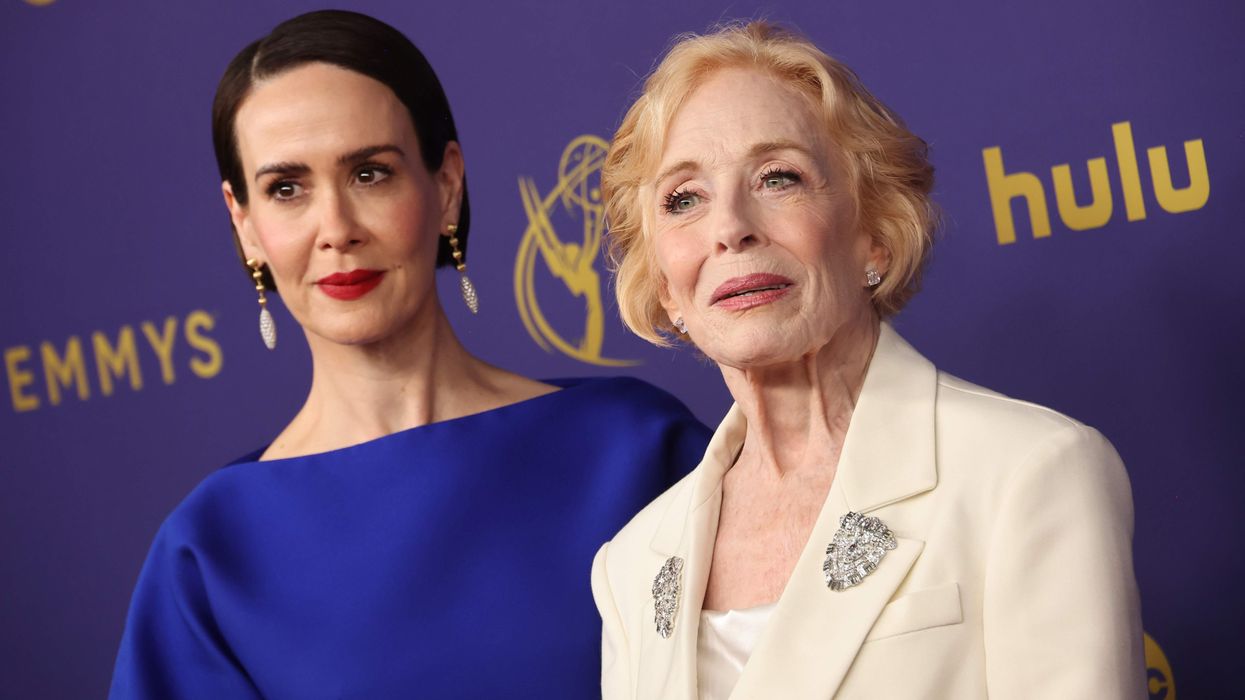

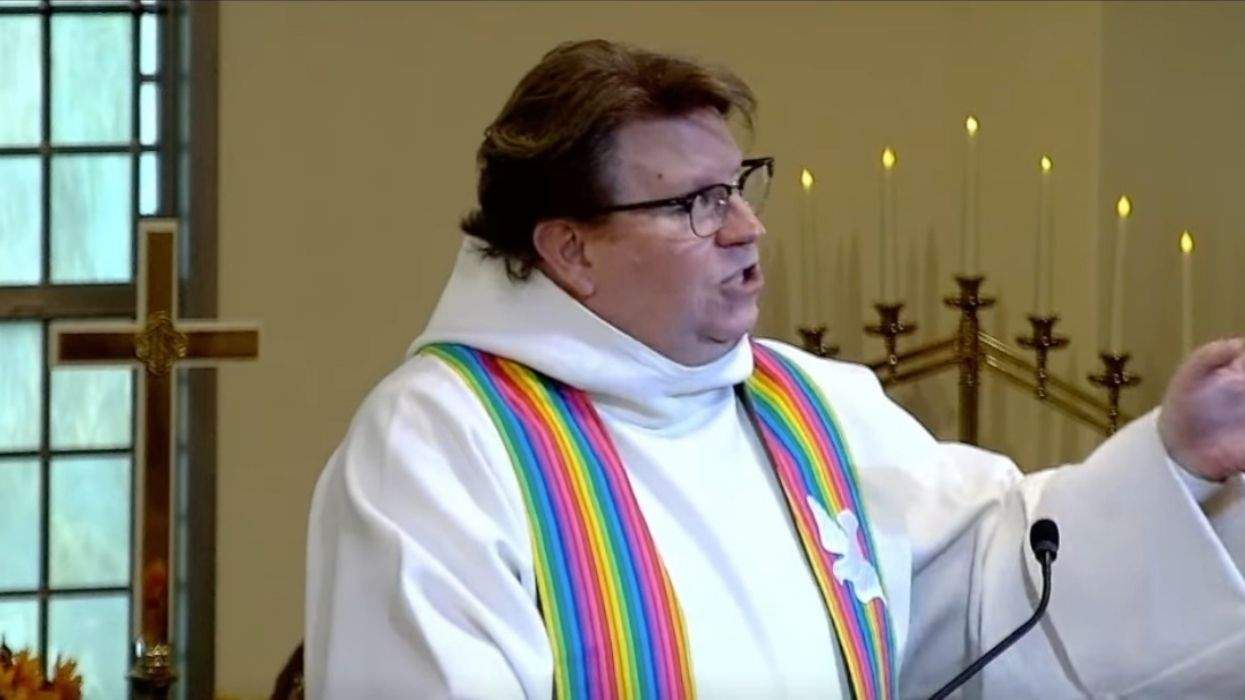


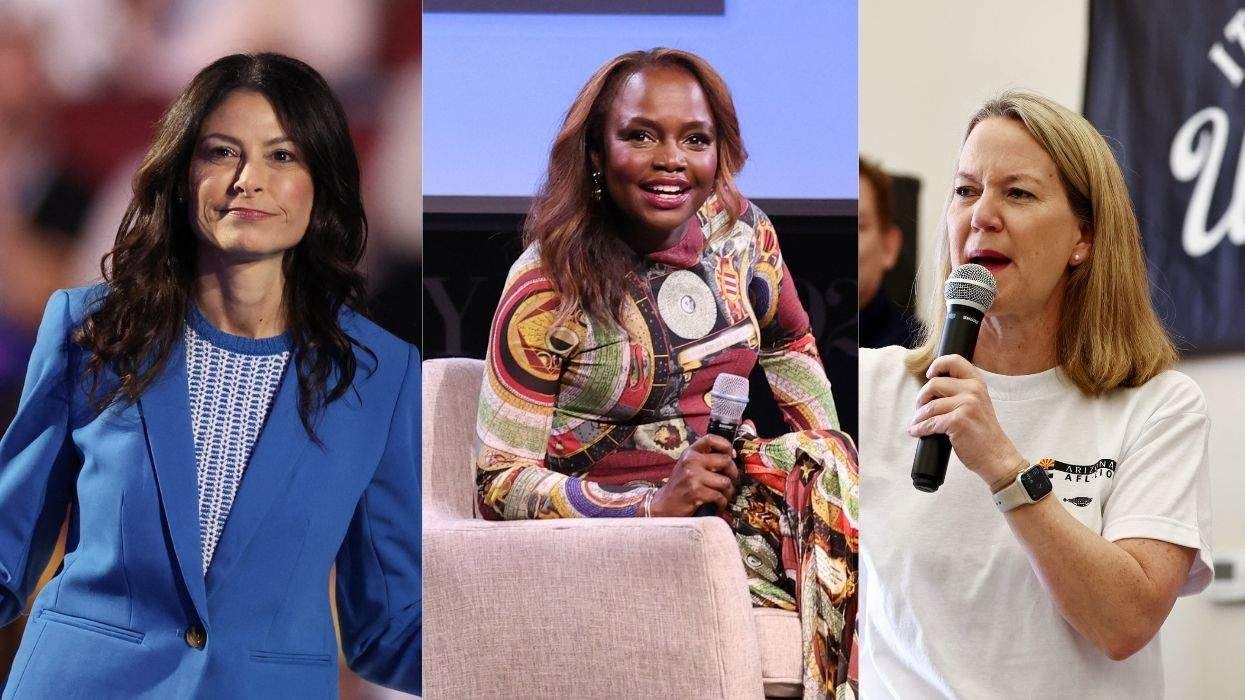


















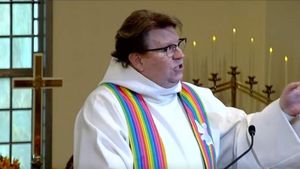









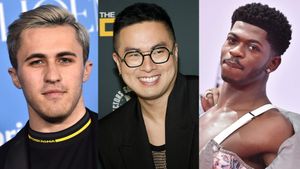

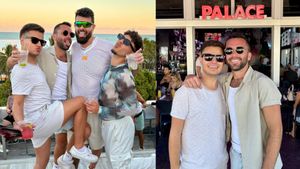


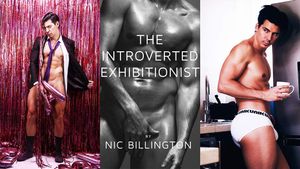
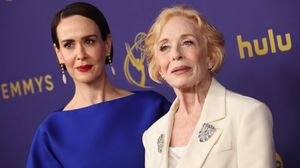
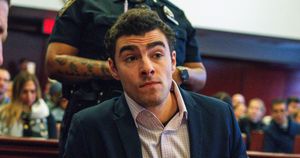







Charlie Kirk DID say stoning gay people was the 'perfect law' — and these other heinous quotes